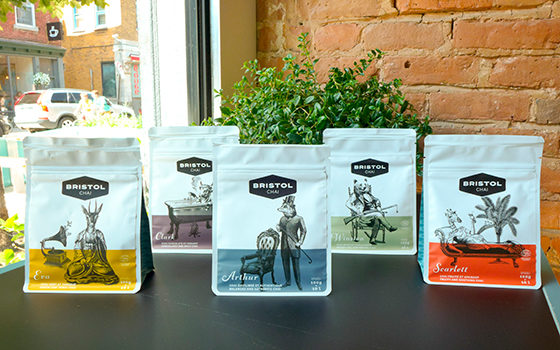When facing the plethora of beverages to now choose from, it may be a little difficult to find the right balance between taste and health. With Bristol Chai, the first chai bar in Quebec, the team from Camellia Sinensis Tea House developed five original chai recipes inspired from Indian know-how.
Is a chai latte healthy? First of all, while caffeine is not considered harmful in itself, it can become so depending on the amount consumed. The amount of caffeine found in tea, while varying from one family to the next, is much lower than that found in coffee. It’s important to note that the caffeine found in tea is also assimilated differently than coffee – it actually stays stable longer and serves to increase focus. The caffeine in chai is even lower since the black tea used is blended with spices. Being tannic and aromatic, the black tea supports the interplay of the chai blend. Looking for a caffeine-free option? The Scarlett blend, with rooibos, is the option of choice to limit caffeine stimulation. The various spices included in the chai also give it other interesting properties. The blend of ginger and green cardamom, a powerful antioxidant duo, works in synergy to facilitate digestion, better oxygenate the body, and fight bacteria. Paired with the cinnamon and black pepper, the result is a classic tasting chai – comforting, warm, and subtly spicy.
And what about the milk and sugar? The trick is moderation. When prepared with 5 g of sugar and 2% cow’s milk (or a plant based milk such as almond, soy, coconut or oat) like at Bristol Chai, we can certainly confirm that the chai latte offers an interesting balance. You can leave out the sugar when you prepare it at home, but a minimum is always recommended to enhance the taste of the spices. The fact is, when compared to store-bought chai, soft drinks or shakes, which can include 20–100 g of sugar per 12 oz., the chai latte is not just a sensible choice, it’s a delicious one, too!
Camellia Sinensis Tea House

